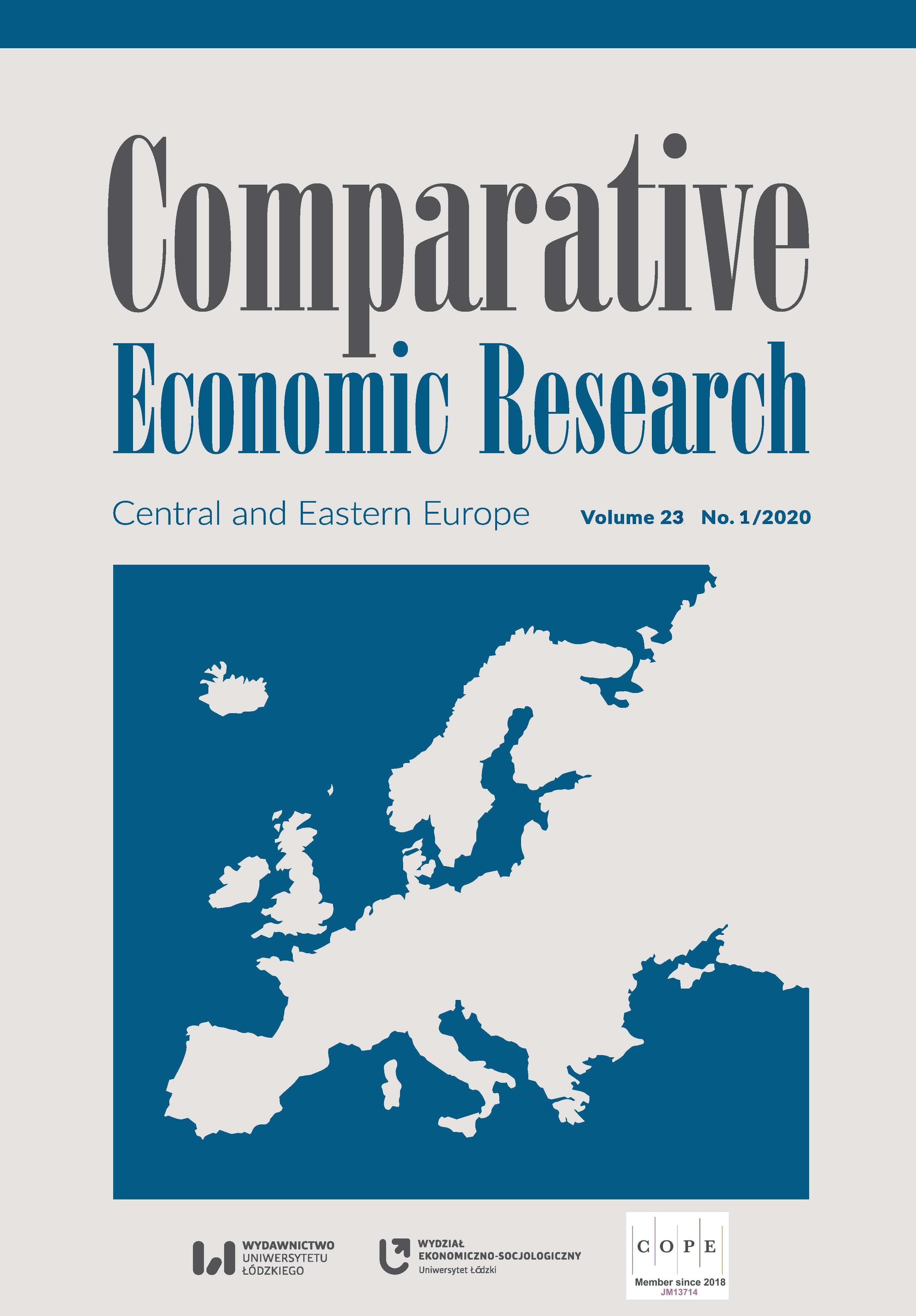The European Union’s Screening Framework for Foreign Direct Investment: Consequences for External Relations
DOI:
https://doi.org/10.18778/1508-2008.23.02Keywords:
Foreign direct investment (FDI), screening framework, the European Union, external relations, Chinese investment abroadAbstract
The Lisbon Treaty gives the European Union (EU) institutions new external competences, including foreign direct investment (FDI) in the common trade policy. Using these competences the European Commission formulated a proposal for a regulation establishing the screening framework for FDI, which entered into force in April 2019. The aim of this paper is to discuss the issue of FDI screening as an element of policies towards FDI applied by developed countries, to assess the justifications for its introduction, as well as the potential consequences of the screening framework for inflowing FDI into the EU. A need to protect the EU’s strategic economic interests in relations with third countries was the reason for the introduction of the new tool at the EU level. The new system of screening FDI inflows into the EU is not centralized. The right to screen remains the sole responsibility of the Member States. The co-ordination mechanism at the level of the EU which has been constructed seems to give guarantees that common interests will be protected. The economic and political consequences of the EU’s screening framework for FDI should be foreseen. Apart from administrative and compliance costs, as well as uncertainty and delays related to investment decision processes, two categories of potential consequences seem to be important. These are the expected reduced access to capital by some Member States, especially the ‘new’ ones, and the worsening of relations with external partners, especially China.
Downloads
References
Consolidated Version of the Treaty on Functioning of the European Union (2012), Official Journal of the European Union, C326/47 (accessed: 26.10.2012).
Google Scholar
EC (2017), State of the Union 2017 – Trade Package: European Commission proposes framework for screening of foreign direct investments, The European Commission, Brussels, 14 September 2017, http://trade.ec.europa.eu/doclib/press/index.cfm?id=1716 (accessed: 11.01.2019).
Google Scholar
EC (2017a), Foreign Direct Investment–An EU Screening Framework, State of the Union 2017, The European Commission, Brussels.
Google Scholar
EC (2017b), Commission Staff Working Document Accompanying the document Proposal for Regulation of the European Parliament and of the Council establishing a framework for screening of foreign direct investments into the European Union, COM (2017) 487 final, Brussels SWD (2017) 297 final.
Google Scholar
EC (2017c), Proposal for a Regulation of the European Parliament and of the Council establishing a framework for screening of foreign direct investments into the Europen Union, COM (2017) 487 final (accessed: 13.09.2017).
Google Scholar
EC (2018), Review of national rules for the protection of infrastructure relevant for security of supply, Final Report, The European Commission, Brussels, February 2018.
Google Scholar
EC (2018a), Commission welcomes agreement on foreign investment screening framework, Press release, The European Commission, Brussels, 20 November 2018, http://europa.eu/rapid/press-release_IP-18-6467_en.htm (accessed: 11.01.2019).
Google Scholar
EC (2019), Foreign Investment Screening: new European framework to enter into force in April 2019, Brussels, 5.03.2019, http://europa.eu/rapid/press-release_IP-19-1532_en.htm (accessed: 4.04.2019).
Google Scholar
EP (2018), Agreement reached on screening of foreign direct investment for EU security, Press releases, Brussels 20.11.2018, http://www.europarl.europa.eu/news/en/pressroom/20181120IPR19506/agreement-r (accessed: 11.01.2019).
Google Scholar
EP (2019), EU to scrutinize foreign direct investment more closely, Press Releases, Plenary Session, “News. European Parliament” (accessed: 14.02.2019).
Google Scholar
EPRS (2017), European Parliamentary Research Service, Foreign direct investment screening. A debate in light of China – EU FDI flows, Briefing, May 2017.
Google Scholar
EPRS (2019), European Parliamentary Research Service, EU framework for FDI screening, Briefing, February 2019.
Google Scholar
Esplugues, C. (2019), A future FDI screening system: solution or problem?, “Columbia FDI Perspectives” No. 245, February 11, 2019.
Google Scholar
Gerhard, M. (2018), Mehr Schutz vor auslandischen Direktinvestitionen?‚ “Wirtschaftsdiens”, No. 11. https://doi.org/10.1007/s10273-018-2371-y
Google Scholar
Hanemann, T., Huotari, M., Kratz, A. (2019), Chinese FDI in Europe: 2018 Trends and Impact of New Screening Policies, A Report by Rhodium Group (RHG) and the Mercator Institute for China Studies (MERICS), March 2019.
Google Scholar
Knoerich, J., Miedtank, T. (2018), Chinese Foreign Direct Investment in the EU, “CESifo Forum” Vol. 19, No. 4, December.
Google Scholar
OJEU (2019), Regulation (EU) 2019/452 of the European Parliament and the Council of 19 March 2019 establishing a framework for the screening of foreign direct investments into the Union, Official Journal of the European Union L 79 I, 21.03.2019.
Google Scholar
Pach, J. (2001), Bezpośrednie inwestycje zagraniczne w świetle bezpieczeństwa ekonomicznego na przykładzie Polski w latach dziewięćdziesiątych XX wieku, Wydawnictwo Naukowe Akademii Pedagogicznej im. Komisji Edukacji Narodowej, Prace Monograficzne, No. 309, Kraków 2001.
Google Scholar
Sunesen, E.R., Hansen, M.M. (2018), Screening of FDI towards the EU, Copenhagen Economics, Danish Business Authority.
Google Scholar
Szczudlik, J., Wnukowski, D. (2019), Reforma mechanizmów kontroli inwestycji w USA i UE: odpowiedź na aktywność Chin, “Biuletyn”, PISM – Polski Instytut Spraw Międzynarodowych, No. 1 (1749), 2 stycznia 2019.
Google Scholar
UNCTAD (1992), Formulation and Implementation of Foreign Investment Policies, UN, New York.
Google Scholar
UNCTAD (2003), World Investment Report. FDI Policies for Development: National and International Perspectives, UN, New York, and Geneva.
Google Scholar
UNCTAD (2006), Measuring Restrictions on FDI in Services in Developing Countries and Transition Economies, UN, New York, and Geneva.
Google Scholar
UNCTAD (2018), Investment Policy Monitor, December, Issue 20.
Google Scholar
UNCTAD (2019), China Adopted the Foreign Investment Law, March 15, 2019, Investment Policy Monitor, https://investmentpolicy.unctad.org/investment-policy-monitor/measures/3375/china-china-adopted-the-foreign-investment-law (accessed: 20.06.2019).
Google Scholar
Weihua, Ch. (2019), EU’s new FDI screening should not target China, “China Daily”, 8 March.
Google Scholar
Witkowska, J. (2000), Polityka wobec bezpośrednich inwestycji zagranicznych, [in:] Skutki napływu zagranicznych inwestycji bezpośrednich (Materiał z posiedzenia Rady Społeczno-Gospodarczej), Warszawa.
Google Scholar
Downloads
Published
How to Cite
Issue
Section
License

This work is licensed under a Creative Commons Attribution-NonCommercial-NoDerivatives 4.0 International License.











